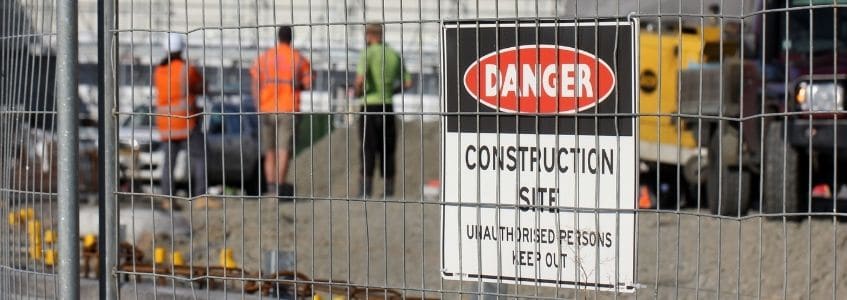Insulation installers play a vital role in the effective conservation of heat and energy in industrial buildings during the winter. By ensuring proper installation, they contribute to reducing energy costs, improving efficiency, and creating a comfortable and sustainable environment. Learn more about the importance of safety compliance for insulation installers and how their expertise benefits both building owners and occupants.
Understanding the Role of Insulation Installers
Insulation installers have multifaceted responsibilities within the construction industry. Their expertise in assessing project requirements, selecting suitable insulation materials, and executing proper installation techniques ensures the effective insulation of buildings. By prioritizing safety compliance and staying up-to-date with industry practices, insulation installers contribute to creating energy-efficient, comfortable, and sustainable structures.
Review Construction Project Insulation Needs
One of the primary responsibilities of insulation installers is to assess the specific needs of a construction project. They examine the building's design, purpose, and environmental conditions to determine the most suitable insulation materials and techniques. By considering factors such as thermal conductivity, moisture resistance, and fire safety, they can recommend the appropriate insulation solution.
Insulation installers have in-depth knowledge of different insulation types and their specific characteristics. They understand the advantages and limitations of various insulation materials, such as fiberglass, cellulose, foam, or mineral wool. This expertise allows them to make informed decisions during installation, ensuring the best outcome for thermal performance and energy conservation.
Proper Insulation Installation
Once the insulation materials have been selected, insulation installers are responsible for their proper installation. Their expertise in handling and installing insulation ensures that the materials are applied accurately and efficiently. This includes measuring and cutting the insulation to fit the designated areas, ensuring a seamless and tight seal. Proper insulation installation prevents air leakage, minimizes heat transfer, and maximizes energy efficiency.
Insulation installers also play a pivotal role in maintaining safety compliance during the installation process. They adhere to industry regulations and guidelines to ensure a safe working environment for themselves and other construction workers. This includes wearing appropriate personal protective equipment (PPE), following proper handling procedures for insulation materials, and implementing safety measures to prevent accidents or injuries.
Safety First: Why Safety Compliance Matters for Insulation Installers
Insulation installers work in environments that may pose potential risks and hazards. Understanding and adhering to safety compliance measures not only protects the well-being of the insulation installers themselves but also ensures the overall success of the project.
Insulation Installer Risks
- Hazardous Materials: One significant risk is the exposure to hazardous materials. Many insulation materials contain chemicals or fibers that can be harmful if inhaled or come into contact with the skin.
- Confined Spaces & Elevated Heights: In addition to hazardous materials, insulation installers often work in confined spaces or at elevated heights. This presents the risk of falls, slips, or trips. Without proper safety precautions, such as wearing appropriate harnesses or using scaffolding, accidents can occur, resulting in severe injuries.
- Electrical Hazards: Another risk faced by insulation installers is the potential for electrical hazards. They often work in close proximity to electrical wiring or equipment, increasing the risk of electrical shocks or fires. Adherence to safety protocols, such as de-energizing electrical systems before commencing work or using insulated tools, significantly reduces the likelihood of accidents.
- Environmental Hazards: Insulation installers may also encounter environmental hazards such as extreme temperatures, strong winds, or adverse weather conditions. These factors can compromise their safety and well-being. By keeping a vigilant eye on weather forecasts and taking necessary precautions, insulation installers can mitigate the risks associated with adverse environmental conditions.
Insulation Industry Regulations and Compliance
Insulation installers must stay up-to-date with relevant industry regulations to ensure their work meets the required standards. The regulations that insulation installers must adhere to vary depending on the country or region. In the United States, for example, the Occupational Safety and Health Administration (OSHA) sets forth regulations and guidelines to ensure workplace safety. Insulation installers must comply with OSHA's standards, which cover various aspects such as personal protective equipment (PPE), handling hazardous materials, ladder safety, and fall protection. Those in the insulation industry may also need to comply with specific industry certifications or standards. For example, in the United States, the North American Insulation Manufacturers Association (NAIMA) provides certifications like the NAIMA 202-96® Standard for Flexible Fiberglass Insulation. By obtaining and maintaining these certifications, insulation installers demonstrate their commitment to quality and compliance in their work.
Safety Compliance with ISNetworld®
One key organization that plays a significant role in ensuring safety compliance within the insulation industry is ISNetworld®. ISNetworld® is an online platform that connects companies with contractors and suppliers, focusing on verifying and evaluating their health, safety, and environmental (HSE) performance.
ISNetworld® acts as a centralized database where insulation companies can submit their safety data and provide evidence of compliance with industry regulations. This includes documentation related to training, incident reporting, emergency response plans, and safety procedures. By thoroughly vetting contractors and suppliers, ISNetworld® helps companies assess the qualifications and safety records of potential insulation installers.
Benefits of Industry Safety Compliance
Maintaining safety compliance is just as important for insulation installers as any other industrial work. It offers several benefits that contribute to the overall success of insulation projects and the reputation of the installers themselves.
- Enhanced Safety: The primary benefit of safety compliance is the protection of insulation installers' health and well-being. By following safety regulations and guidelines, installers minimize the risk of accidents, injuries, and exposure to hazardous materials. Prioritizing safety ensures a safe working environment, reducing the likelihood of incidents and promoting the well-being of everyone involved in the project.
- Improved Reputation: Safety compliance demonstrates professionalism and a commitment to quality workmanship. Insulation installers who adhere to safety regulations are viewed as reliable and trustworthy professionals. This commitment to safety enhances their reputation within the industry and among clients, increasing their chances of securing future projects and building long-term relationships based on trust and credibility.
- Legal Compliance: Safety compliance ensures that insulation installers meet the legal requirements set forth by regulatory bodies such as OSHA and local building codes. By staying up-to-date with these regulations, installers avoid potential legal issues, penalties, or fines. Compliance not only protects the installers but also safeguards the interests of their clients and prevents any potential liability concerns.
- Enhanced Efficiency and Productivity: Adhering to safety protocols and guidelines promotes a more efficient and productive work environment. When insulation installers prioritize safety, they reduce the likelihood of accidents or injuries that could result in delays or disruptions to the project timeline. By avoiding these setbacks, installers can complete projects more efficiently, meet deadlines, and maintain client satisfaction.
- Cost Savings: Safety compliance can lead to cost savings in the long run. By preventing accidents, injuries, and damage to property, insulation installers avoid potential financial losses associated with medical expenses, legal fees, or insurance claims. Moreover, maintaining a safe work environment reduces the need for rework or repairs caused by safety-related errors, resulting in improved project profitability.
Developing a Safety Program for Insulation Contractors
Creating a comprehensive safety program is one of the most important pieces for insulation contractors to ensure the well-being of their workers and maintain compliance with industry regulations. Here are some insights and tips for developing an effective safety program and examples of best practices and resources available for insulation contractors.
- Thoroughly Analyze Your Worksite: Conduct a thorough analysis of your worksite to identify potential hazards specific to insulation installation. This includes assessing risks associated with handling hazardous materials, working at heights or in confined spaces, and exposure to extreme weather conditions.
- Write a Company Safety Policy: Develop a written safety policy that clearly outlines your commitment to safety and the expectations for all employees. The policy should cover areas such as personal protective equipment (PPE), hazard communication, emergency response procedures, and safety training requirements.
- Establish Work Rules and Safety Practices: Develop a set of work rules and safety practices that address the specific risks and hazards faced by insulation contractors. These rules should be communicated to all employees and contractors, and regular training sessions should be conducted to ensure understanding and compliance.
- Provide Training and Education: Implement a comprehensive training program to educate insulation contractors on safety protocols and best practices. This should include general safety awareness training, specific training on the proper handling of insulation materials, and training on the use of PPE. Regular refresher courses and updates on new safety regulations should also be provided.
- Utilize Available Resources: Take advantage of the resources available to insulation contractors to enhance safety practices. For example, organizations like OSHA (Occupational Safety and Health Administration) provide guidelines and publications related to construction safety, including insulation installation. The National Insulation Association (NIA) and other industry associations also offer resources and best practice recommendations.
- Learn from Best Practices: Study successful safety programs implemented by other insulation contractors or construction companies. Look for case studies or success stories that highlight innovative approaches to safety and incorporate those practices into your own program.
- Periodic Safety Audits and Reviews: Regularly review and assess your safety program to identify areas for improvement. Conduct periodic safety audits to ensure compliance with regulations and to address emerging risks or challenges. Solicit feedback from employees and contractors to improve the effectiveness of the safety program continuously.
Creating a safety program can be daunting and time-consuming. There are many details to consider, requirements to follow, and ever-changing industry regulations and standards. Working with a safety consultant team specializing in your field can help save you time and money in the long run.
Work with Industrial Compliance & Safety for Insulation Safety & Compliance
We are a global pre-qualification assistance company based out of Charlotte, NC with over 20 years of expertise in ISNetworld®, Avetta®, PEC® Premier, and all the other large and small certification systems. We excel in assessing and creating custom safety programs that are tailored to each client’s request for a variety of industrial businesses across the globe.
WE ARE PASSIONATE
As dedicated safety compliance consultants, we have a proven record of accomplishment and are a reputable company in the United States. We ensure that all our work is done with utmost professionalism using our expert knowledge in safety compliance.
HONEST AND DEPENDABLE
We are transparent with our services, costs, and programs. We value your trust in us to evaluate and meet your company’s needs. We take pride in proving ourselves reliable and trustworthy as we build our working relationship with one another!
COMPETITIVE PRICING
We offer a great service that is at a low cost to you! Talk to one of our certification experts today to get a quote!
YOUR TIME IS IMPORTANT
We value your time as an owner or manager running a business. Open communication that provides clear and realistic expectations on deadlines and schedules is key. Industrial Compliance & Safety provides the most cost-effective and efficient products to you and your business.
Ensuring industrial compliance and safety is important for businesses operating in various industries. By partnering with a reliable safety consulting service, you can proactively address safety risks, maintain regulatory compliance, and create a secure work environment for your employees. Contact Industrial Compliance & Safety today, we are a reputable safety consulting firm that specializes in global industrial compliance and safety. Together, we can build a culture of safety and protect your most valuable asset – your people.
Ready To Get Compliant Today?
Call us or complete the form below!





